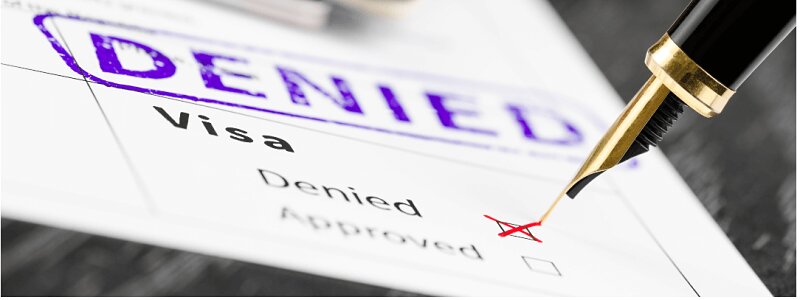
As Egypt’s Sinai Peninsula shares a land border with Israel and a maritime border with Jordan, many travelers to Egypt take the opportunity to explore these nearby Middle Eastern countries during their stay.
Egypt’s land border with Israel is located close to the Taba Red Sea resort, and within driving distance of the other popular resorts on the Sinai Peninsula, including Dahab, Nuweiba, and Sharm El Sheikh.
Travelers who wish to visit Jordan during their stay are able to either cross through Israel from Egypt, or alternatively take a ferry from Nuweiba in Egypt to Aqaba in Jordan.
Read on to find out the best routes and visa requirements to travel to Egypt and Jordan from Israel.
Where Can You Cross the Border from Israel to Egypt?
The only border point which almost always permits travel to Egypt and Israel for tourists is the Taba border crossing in north of Egypt with Eilat, Israel’s southernmost city.
Previously, there was another border crossing open to tourist travel between the two countries, the Nitzana border checkpoint with Abu Ujaylah, Egypt. However, this is now only open for commercial trade between the two nations.
The Taba border crossing is also known as the Menachem Begin crossing, named for the sixth Prime Minister of Israel, who signed a peace treaty between the two countries. The Taba terminal is open 24 hours a day and every day except the Jewish holiday of Yom Kippur and the Islamic holiday of Eid ul-Adha.
All travelers crossing into Egypt through Taba are required to pay a border fee of around NIS 109 (around US $30) before leaving Israel. It is advisable to bring cash to the terminal to pay the fee. It is also possible to pay the crossing fee using a credit card, but this requires an extra 6 NIS service charge per transaction (not per traveler).
Those traveling to within 1 km of the border on the Egyptian side are not required to pay the crossing fee, provided they can provide a printed hotel reservation for one of the following Taba resorts: the ex-Hilton Taba Resort & Nelson Village, the Mövenpick Resort, or the Radisson Blu Resort Taba.
Those who plan to travel to Jordan and Israel and Egypt during their stay in the Middle East are able to use the Taba border crossing as well as one of the following crossings between Jordan and Israel:
- Allenby Border Crossing
- Yitzhak Rabin/Wadi Araba Border Crossing
- Jordan River Border/Sheikh Hussein Crossing
Taba Border Crossing Operating Hours
The Taba border crossing is open 24 hours a day from Monday to Sunday. During holidays, the crossing operating hours are liable to change.
Do I Need a Visa to Travel to Egypt from Israel?
Those planning to travel to Egypt from Israel and Jordan should first check Egypt visa requirements to see if they need to obtain a travel visa in advance.
If you are only visiting the Taba resorts and have proof of a hotel reservation, you may not need a visa to cross from Eilat.
Citizens of all European Union countries, the United States, and Israel (through the Taba Border Crossing) do not require a visa to travel to the Sinai Peninsula resorts for up to 14 days, as they are granted free entry permission upon arrival. This includes the Taba resorts.
Other foreign nationalities traveling to the Sinai resorts, as well as all foreign citizens not visa-exempt for mainland Egypt, are required to have a visa to travel to Egypt.
Citizens of more than 80 nationalities are able to obtain a tourist visa for Egypt through a simple online application, which only takes a few minutes to complete.
Applicants are required to fill in basic personal, passport, and travel information, and answer a few questions related to health and security matters to submit the form and receive an approved eVisa via email.
A select number of nationalities are able to enter Israel for up to 90 days visa-free for purposes of tourism. Other foreign citizens are required to apply for a visa from an Israeli consulate in advance.
Entering Egypt with an Israel Entry/Exit Stamp
Although some Arab countries do not grant access to foreign citizens with evidence of prior travel to Israel in their passport, those entering Egypt with an Israeli entry/exit stamp should not have any problems.
Diplomatic relations between Egypt and Israel have improved considerably in recent times and many Israelis enjoy holidays on the Sinai Peninsula. In fact, Israelis enjoy visa exemption for up to 14 days when crossing the border at Taba.
As Israel tends to give entry and exit stamps to all travelers who cross its borders, this can be a problem for those who later intend to travel to some Arab countries. However, this is not usually the case when traveling to Egypt.
Egypt customs and entry requirements state that entering Egypt with an Israeli stamp in a passport normally does not cause any problems in gaining access to the country.
However, it may be worth finding out how you can avoid getting an Israel stamp in your passport in case you wish to visit neighboring Arab countries who do not tolerate Israel.
Where Can’t I go if I Have an Israel Stamp in my Passport?
In general, you will be allowed into Egypt with an Israel stamp on your passport, although the final decision will be made on an individual basis by Egyptian authorities at border control.
Many travelers to Egypt who visit the Sinai Peninsula resorts such as Sharm El Sheik decide to make short trips over the border into Israel and to visit Jordan. If you do visit Israel from Egypt, you are likely to receive a stamp at Egyptian border control.
This stamp will not cause problems when returning to Egypt, but may limit travel to other countries in the region.
The following countries do not allow entry to travelers with Israeli stamps in their passport:
- Afghanistan
- Lebanon
- Libya
- Iran
- Iraq
- Kuwait
- Pakistan
- Saudi Arabia
- Sudan
- Syria
- Yemen
Immigration personal in some of these countries may be extremely vigilant in looking for any trace of prior travel to Israel. Even luggage tags issued in Israel may be used as evidence to deny entry, and those with any trace of Israeli entry stamps in their passport will be immediately turned away.
However, in recent years it has become much easier to avoid getting an Israel stamp in your passport, thanks in large part to new procedures implemented by the Israeli government.
Egypt and the following Islamic countries do allow travelers with Israeli stamps to enter:
- Algeria
- Bahrain
- Bangladesh
- Indonesia
- Jordan
- Malaysia
- Morocco
- Oman
- Qatar
- The United Arab Emirates
- Tunisia
- Turkey
Can You Ask Israel Not to Stamp Your Passport at the Egyptian border?
The easiest way to avoid getting entry/exit stamps in Israel is simply to ask Israeli immigration officials not to stamp the passport, which they will usually comply with. In fact, this has now become common practice because Israel has recognized that a passport stamp can cause problems with onward travel.
It is now standard procedure for Israeli immigration to stamp two separate pieces of paper upon entry and exit to the country, a blue slip upon arrival, and a pink slip upon departure.
The blue slip must be kept on the traveler's person during the entire stay - it may be requested for review at your accommodation - and exchanged for the pink when leaving Israel’s borders.
Travelers with biometric passports will not be obliged to receive any kind of stamp, as officials will be able to see all of their details through the biometric system.
How to Avoid Getting a Passport Stamp at the Israel-Egypt border
Although it is now possible to avoid getting a stamp from Israel in your passport through the new slip system, there is still a chance you may receive a stamp at the border from Egyptian authorities if you choose to visit Israel during your stay. Although not issued by Israel, this stamp may still be considered grounds for rejecting the traveler from other Arab countries.
If you do intend to visit other Arab countries after Egypt, it’s a good idea to ask Egyptian border control to place your stamp on a separate piece of paper.
Those traveling in a family should also make sure that no Israeli stamps get placed in their kids’ passport.
Travelers with dual nationality and multiple passports have another way of getting around any potential stamps: they can simply use one passport to visit Israel, and the other travel document to visit those countries with restrictions against Israeli stamps.
In conclusion, those planning to visit Egypt after traveling to Israel should not face any problems because of the new stamping procedures introduced by the Israeli government. However, it is also essential to check the Egyptian visa requirements for your nationality before departure, as it may be necessary to obtain a visa to gain access to Egtypt.


